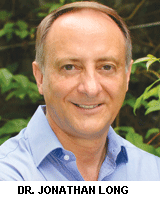 In the 13th century, an unknown monk named Peter wrote some words, which could easily have appeared in today’s newspapers: The world is going through troubled times. Today’s young people only think of themselves. They’ve got no respect for parents or old people. They’ve got no time for rules or regulations. To hear them talk, you’d think they knew everything. And what we think of as wise, they just see as foolish.
In the 13th century, an unknown monk named Peter wrote some words, which could easily have appeared in today’s newspapers: The world is going through troubled times. Today’s young people only think of themselves. They’ve got no respect for parents or old people. They’ve got no time for rules or regulations. To hear them talk, you’d think they knew everything. And what we think of as wise, they just see as foolish.
Not much seems to have changed in the past 1,000 years when it comes to the challenges of raising and nurturing children!
Interestingly, several recent surveys suggest that employers are not particularly interested in the skills and knowledge that examination qualifications certify. Most employers are more interested in candidates’ employability quotient rather than academic qualifications — that they are punctual, diligent, presentable and hardworking and have the ability to work well with other people. This highlights a basic need in education today — to create a balance between a student’s personal development and academic success. Few parents would disagree with this. The greater challenge is for schools to find ways of maintaining this balance.
The ancient philosopher Aristotle once noted: “We are what we repeatedly do.” Whatever we practice most is what we will become. If we are in the habit of becoming angry and frustrated when things don’t go our way, or reacting to circumstances with impati-ence and despair, generating excessive anxiety in the face of adversity, then unfortunat-ely, our lives will become a reflection of these types of negative responses. We will become desperate and impatient because these are the responses we have been practicing.
Repeated practice is also one of the most basic principles of most spiritual faiths. Ancient wisdom has carved this principle out as the foundation of character development and personal growth. Habit is like a cable: we weave a strand of it everyday and soon it cannot be broken. One of the most important responsibilities of a school is to create an environment in which certain habits are cultivated and certain practices encouraged. Values are unquestionably ‘caught’ rather than ‘taught’.
One of the most critical decisions that parents make on behalf of their children is the choice of school. For it is in school that children learn to practice certain things rather than others. These aren’t things learnt in the classroom — they are the more subtle attitudes and values that are learnt from example and absorbed in the ethos of a living and breathing community. Few parental choices made for their children will have an impact that is so formative.
“We are what we repeatedly do,” said Aristotle, but he went on to add: “Excellence, then, is not an act but a habit.” In my experience, the cultivation of good habits is a defining feature of an excellent school. These are schools which recognise the awesome formative impact a strong community can have on a young person’s life. The tacit lessons of strong, learning communities are more powerful than words, more significant than facts. In these lessons lie the seeds of excellence and the makings of destiny.
The environment and ethos of a school are crucial if young people are to flourish and develop positive values. The American Medical Association reported the results of the most extensive survey of over 90,000 teenagers some years ago. The research concluded that “emotional conn-ectedness” was the most significant factor in protecting young people from emotional distress, violent behaviour, substance abuse and early sexual experimentation. In schools, the quality of relationship between teacher and child is vital in the formation of this connectedness.
Many of the most obvious lessons of life are delivered in classrooms. However, we forget that some of the most significant lessons are learned elsewhere — on the sports field, in the corridor, in the lunch queue and in the thousand and one fleeting interactions between students inter se and students and teachers everyday. The obvious lessons can only take us so far, but there’s no telling how far the significant lessons will take us. Schools must not become places where the significant is lost to the dominance of the obvious.
If our schools are to be effective communicators of positive values, they have to be caring communities rather than mere academic institutions. Their subject competence apart, teachers should be custodians of environment and ethos. Their role is to tend the soil and nurture the climate within which high-yield seeds can be planted and grown. These are the seeds of academic, emotional, spiritual, aesthetic and moral development. This institutional environment has to be of high quality for children to develop and attain their full potential.
The trends which alarmed Peter the Monk certainly haven’t been tamed by the surge of technology, and convenience of 21st century life. In fact, there is greater need now for values of respect and trust at the heart of human character and conduct, than there was in his ‘troubled times’! Our schools have a pivotal role to play in helping young people to form strong character and acquire positive values. For in education, as in life, we are shaped by the environment in which we live and grow.
(Dr. Jonathan Long is currently principal of the Mahindra United World College, Pune and principal-designate of the Woodstock School, Mussoorie)